With 22 partners across research, industry, and policy, OCCAM supports a more sustainable and resilient aquaculture future.
![]()
Country: Norway
Website: Nofima – A leading institute for applied research within fisheries, aquaculture and food.
Description: Nofima is a leading research institute that conducts research and development for the aquaculture industry, the fishing industry and the food industry.
Our research is industry-oriented and relevant, and the knowledge we generate is actively applied by our clients.
Role in Project: Nofima coordinates the OCCAM project. We are also responsible for the exploitation of the project results and part of the communication and dissemination team.
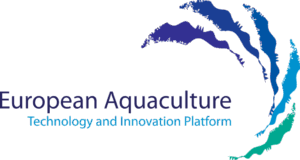
Country: Belgium
Website: https://eatip.eu
Description: A multi-actor platform promoting both knowledge transfer and a Strategic Research & Innovation Agenda (SRIA) for sustainable development of the European aquaculture sector, EATiP membership is drawn from across the quadruple helix and entire aquaculture value chain.
Role in Project: EATiP will contribute to two work packages; firstly, assisting with Communication and Dissemination actions, utilising the EATiP Mirror Platform network and secondly in supporting exploitation actions, leading on the delivery of a White Paper containing recommendations for policymakers on climate adaptation & mitigation measures.
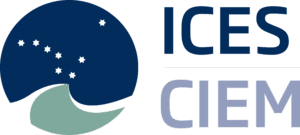
Country: Denmark
Website: https://www.ices.dk
Description: The International Council for the Exploration of the Sea (ICES) is an intergovernmental marine science organization, meeting societal needs for impartial evidence on the state and sustainable use of our seas and oceans.
Our goal is to advance and share scientific understanding of marine ecosystems and the services they provide and to use this knowledge to generate state-of-the-art advice for meeting conservation, management, and sustainability goals.
Role in Project: ICES will contribute to multiple work packages; mainly contributing and assisting with WP6 communication and dissemination activities, using the ICES network and contributing to WP 1, leading on the development of templates (S10) for requesting and provision of advice to the aquaculture sector.

Country: Faroe Islands
Website:
Description: Avrik is a private consultancy with direct access to biological and environmental data at all farming sites in the Faroe Islands. They provide site-specific and national biological performance assessments to the entire Faroese salmon aquaculture industry.
Role in Project: Part of CS3 developing the decision support tool for salmon.

Partner: Firum
Country: Faroe Islands
Website: https://firum.fo
Description: Firum (Fiskaaling) research in how aquaculture activities affect, and are influenced by, the natural environmental conditions in which they operate
Role in Project: Firum will be responsible for developing a sea lice infection and population dynamic model to predict and adapt to sea lice infection levels in a changing climate.

Country: Faroe Islands
Website: https://hiddenfjord.com/
Description: Hiddenfjord is a salmon farming company in the Faroe Islands.
Role in Project: Validating a sea lice infection and population dynamic model to predict and adapt to sea lice infection levels in a changing climate.

Country: Faroe Islands
Website: https://blueresource.fo/
Description: Sjókovin/Blue Resource is a private, independent, not-for-profit research centre based in the Faroe Islands. Sjókovin/Blue Resource fosters sustainable development and innovation in fisheries and aquaculture
Role in Project:

Country: Germany
Website: https://submariner-network.eu
Description: The SUBMARINER Network is a unique platform that brings actors from the whole Baltic Sea Region together to actively promote innovative and sustainable uses of marine resources. It operates across the whole knowledge triangle – research, education, and innovation – integrating perspectives from a local to an international scale, different scientific disciplines as well as policy and economic stakeholders.
Role in Project: As part of OCCAM, SUBMARINER is responsible for leading the communication and dissemination activities including management of the multi-actor approach.

Country: Iceland
Website: https://matis.is/en/
Description: Matís supports value creation, public health and food safety in strong collaboration with a large group of partners, both from the public and private sectors, domestic and foreign. Through research projects, which are the largest part of our operations, we work on large and diverse challenges with our partners.
Role in Project: WP3 leader where Case studies specific mitigation solutions on site will be developed and tested and partner in the fish sludge case study with Samherji and others.
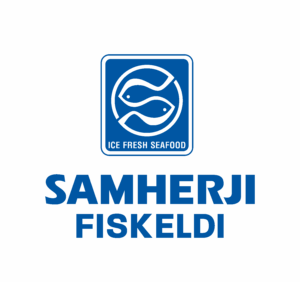
Country: Iceland
Website: Fishfarming | Samherji hf.
Description: Samherji’s aquaculture is comprised of most aspects of fish farming, i.e. hatching, juvenile production, the on-growing of marketable fish, harvesting, packaging and marketing of the products. The various fish farming operations are situated around Iceland. Samherji operates one broodstock farm, one hatchery, three nurseries and tree ongrowing farms. All of the farms are land-based and use crystal clear borehole geothermal water, fresh or brackish.
Role in Project: As part of OCCAM, Samherji fiskeldi will be responsible for producing dewatered sludge for the experiments. Equipment for drying the sludge (80% dry matter) will be set up on site.
![]()
Country: Norway
Website: https://www.akvagroup.com/
Description: AKVA group is one of the world’s largest supplier of solutions and services to aquaculture – at sea and on land. We are present in all the world’s aquaculture markets with offices in 11 countries and about 1.500 employees from 39 nationalities.
Role in Project:AKVA group is a leader of case study 9, which is going to explore circular principles connected to equipment (floater, nets, moorings) at a site for salmon production. How much emissions is it possible to reduce?
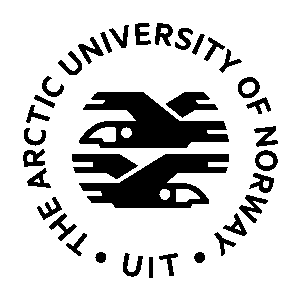
Country: Norway
Website: https://en.uit.no/startsida
Description: UiT The Arctic University of Norway is a medium-sized research university that contributes to knowledge-based development at the regional, national and international level. UiT The Arctic University of Norway is the northernmost university of the world. Its location on the edge of the Arctic implies a mission. The Arctic is of increasing global importance. Climate change, the exploitation of Arctic resources and environmental threats are topics of great public concern, and which the University of Tromsø takes special interest in.
Role in Project: WP2 leader, Work in WP 1, WP3, WP5, WP6, WP7, WP8
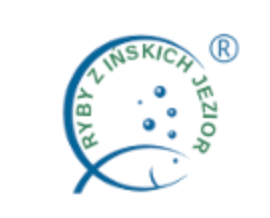
Country: Poland
Website: http://www.icr.com.pl/
Description: ICR is a leading fisheries company in northwestern Poland, managing over 2,500 hectares of lakes and carp ponds in the Ińsko region. With a focus on sustainable fish stock restoration and in-house fry production — including species like pike, vendace, tench, pike perch, and carp — ICR has become a regional leader in freshwater aquaculture.
Role in Project: In OCCAM, the ICR carp farm will serve as a demonstration site for CS1, and the ICR team will actively participate in the development of two solutions in CS1.
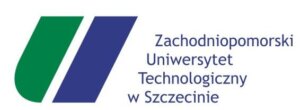
Country: Poland
Website: https://www.zut.edu.pl/
Description: ZUT is a leading University in West Pomerania, and the Faculty of Food Sciences and Fisheries, which deals with all the fields of freshwater aquaculture, from basic to applied aspects, has over 70 years of successful cooperation with the aquaculture industry in Central and Eastern Europe.
Role in Project: In OCCAM, ZUT, as part of WP2, will lead CS1, providing carp farmers with a water availability self-assessment framework and methodology and recommendations for upcycling sediments from pond production. ZUT will also contribute to communication and dissemination by actively involving relevant stakeholders.

Country: Spain
Website: www.caviarpirinea.com
Description: CAVIAR PIRINEA is the Spanish largest aquaculture producer of large rainbow trout. The company currently operates 8 aquaculture farms, with 3 fish processing facilities spread along the north region of Spain. The company produces 6.200 T/year of rainbow trout (O. mykiss) and increases year by year its productivity through intensification, cutting-edge technologies and high added value techniques.
Role in Project: In OCCAM project, CAVIAR PIRINEA will be partner within WP1, WP2, WP6 and WP7 aiming to contribute to key topics (environment, policy, communication) and will develop a specific case study (CS2) on rainbow trout genetics, water quality and RAS technologies from one of its freshwater production facilities located in Galicia.

Country: Spain
Website: https://www.iim.csic.es/
Description: The Institute of Marine Research (IIM-CSIC) is one of the main marine research centers in the Iberian Peninsula. Looking at the Atlantic from Vigo, a city with a strong connection with the sea, the IIM-CSIC faces the challenge of increasing our knowledge about the ocean, from its physical characteristics to the food we take from it and the processes that bind the whole system together.
Role in Project: In OCCAM, CSIC, leads WP1 and participates in WP2 and WP3. As part of WP2, will lead CS2, coordinating the development and validation of solutions within this case-study: selective breeding for heat resilience (S2A) and adaptation of rainbow trout to recirculating aquaculture systems (RAS) using brackish water (S2B). CSIC is also responsible for designing and conducting experimental trials, data analysis, and developing operational protocols. As part of WP3, will lead CS6, aiming at developing, implementing and disseminating a digital tool to monitor the performance and carbon footprint of bivalve production (S6).

Country: Spain
Website: http://www.grupoproinsa.com/
Description: PROINSA, located in the Ría de Ares-Betanzos (Galicia, NW Spain), is the major individual mussel farmer in Spain, which operates about 100 mussel rafts that produce more than 7,000 metric tons per year, providing employment for 100 workers. The company also owns a treatment plant (DEMARLOSA) for the sale of fresh mussels and a transformation plant (VITALMAR) to produce processed mussels. Through PROINSA Mussel Lab, the company has always gone for decisions based on scientific knowledge.
Role in Project: PROINSA will participate in CS6 providing environmental and culture data to validate the digital tool to monitor the performance and carbon footprint of bivalve production, as well as test and eventually implement this solution (S6), in parallel to anti-predator netting for seed protection.

Country: Sweden
Website: www.ivl.se
Description: IVL Swedish Environmental Research Institute is an independent research institute specialising in the environment and sustainability. IVL works with applied research and consultancy assignments that help fulfil both the global sustainability goals and the Swedish environmental goals. IVL has solid scientific expertise in engineering and environmental science, as well as experienced social scientists and economists.
Role in Project: IVL will contribute to the case study characterization in WP1, lead WP4 on environmental sustainability assessments of scenarios and solutions and participate in CS7 and CS8. To adapt to and mitigate increased fouling pressure due to increased water temperature we will test cultivation of oysters (CS7) and seaweed (CS8) in deeper waters.

Country: Sweden
Website: https://www.nordicseafarm.com/
Description: Founded in 2016, Nordic SeaFarm is at forefront of making European seaweed truly available to industries. We grow high value species at our own state of the art seaweed farm and source sustainably from other partner farms. Research & development is in our DNA, and is why we have successfully completed multiple EU-research projects over the years and why we continue to break through with new innovative ways of farming seaweed at scale in the ocean.
Role in Project: Nordic SeaFarm, as part of WP3, will lead CS8 that involves adaptation and development of new seeding material and techniques to reduce carbon footprint of seaweed cultivation. As a way to mitigate increased fouling pressure due to increased water temperature we will also test cultivation in deeper water before the onset of fouling and co-cultivation with bivalves.

Country: United Kingdom
Website: www.sams.ac.uk
Description: The Scottish Association for Marine Science (SAMS) is Scotland’s largest and oldest independent marine science organisation, delivering marine science for a productive and sustainably managed marine environment through innovative research, education and engagement with society.
Based near Oban on the Scottish west coast, our marine research and teaching portfolio is diverse in topic and discipline, global in outlook, project locations and relevance, and delivered by a SAMS team with can-do attitude working in partnership with academic, business, government, regulatory, voluntary and civic society colleagues.
Role in Project: The Scottish Association for Marine Science (SAMS) is principally involved in Case Study 5, related to harmful algal bloom (HAB) early warning, in close collaboration with colleagues at Seafood Shetland. This industry/academia partnership will work to enhance and develop the provision HAB and biotoxin early alert systems to mitigate their impacts, safeguarding both shellfish consumers and the economic prosperity of the Shetland aquaculture sector. SAMS will also contribute to the testing of the sea lice decision support tool of CS3.
SAMS is also involved in WP6, developing and producing engaging short videos for 4 representative case studies (provisionally CS1, CS6, CS8, CS9) within the OCCAM project, as well as 1 final film giving a concise narrative/overview of the whole project. These 4 videos filmed over 2 years (project years 2 & 3) will illustrate project activities, methodologies, and results, making complex information accessible for a wide range of stakeholders and the wider public.

Country: United Kingdom
Website: www.seafoodshetland.co.uk
Description: Seafood Shetland represents the interests of companies involved in all aspects of fish processing and shellfish aquaculture in the Shetland Islands: the most significant component of the isles’ economy.
Role in Project: Seafood Shetland is involved in Case Study 5, in close collaboration with colleagues at the Scottish Association for Marine Science, Oban. This industry/academia partnership will work to enhance and develop the provision of Harmful Algal Bloom (HAB) and biotoxin early warning systems to mitigate their impacts, safeguarding both consumers and the economic prosperity of the Shetland aquaculture sector.